BY DEFENCE JOURNALIST SAHIL | T.I.N. NETWORK
जीशान अख्तर की धमकी: “जो लॉरेंस बिश्नोई को सपोर्ट करेगा, उसे नहीं छोड़ेंगे” — यूबा सिटी गोलीकांड से जालंधर ग्रेनेड तक फैला अंतरराष्ट्रीय अपराध जाल
नई दिल्ली | अक्टूबर 2025 —
पंजाब की गलियों में शुरू हुई स्थानीय गैंग रंजिश अब एक खतरनाक, अंतरराष्ट्रीय और संगठित अपराध युद्ध में बदल चुकी है। हाल ही में सोशल मीडिया और ऑडियो क्लिप के माध्यम से सामने आई जीशान अख्तर की धमकी “जो लॉरेंस बिश्नोई को सपोर्ट करेगा, उसे नहीं छोड़ेंगे” केवल व्यक्तिगत दुश्मनी का बयान नहीं, बल्कि पंजाब के अंडरवर्ल्ड, प्रवासी ठिकानों और सीमा पार संचालन नेटवर्क के बीच जटिल गठजोड़ का संकेत है।
यह धमकी उस समय सामने आई जब अमेरिका के कैलिफ़ोर्निया में हुई गोलीकांड की जिम्मेदारी रोहित गोदारा ने ली। रोहित, जो कभी लॉरेंस बिश्नोई का हिस्सा था और अब गोल्डी बराड़ के साथ जुड़ चुका है, ने यह हमला किया जिसमें बिश्नोई गैंग से जुड़े एक व्यक्ति की मौत हुई और एक अन्य घायल हुआ। उनके सार्वजनिक दावे और सोशल मीडिया पोस्ट इस गैंग युद्ध के विस्तार और ट्रांसनेशनल आयाम को दर्शाते हैं।
स्थानीय गैंगरंजिश से अंतरराष्ट्रीय अपराध जाल तक
लॉरेंस बिश्नोई का नेटवर्क पंजाब में वर्षों से सक्रिय है और रंगदारी, हत्या, मादक पदार्थ और हिंसा से जुड़े कई मामलों में सामने आता रहा है। पिछले कुछ वर्षों में नेटवर्क में दो बड़ी घटनाएँ हुईं — एक, आंतरिक गुटबंदी और फूट, और दूसरा, प्रवासी समुदाय वाले देशों में पैर पसारना।
युबा सिटी और कनाडा में हालिया घटनाएँ इस बदलते परिदृश्य को उजागर करती हैं। हमले अब केवल स्थानीय इलाकों तक सीमित नहीं हैं बल्कि विदेशों में बसे ठिकानों और सामुदायिक सुरक्षा क्षेत्रों तक फैल चुके हैं, जो फंडिंग, भर्ती और ऑपरेशनल सपोर्ट के केंद्र बन गए हैं।
सोशल मीडिया इन गतिविधियों में केंद्रीय भूमिका निभा रहा है। पोस्ट, वीडियो और लाइव संदेश केवल जिम्मेदारी लेने के लिए नहीं, बल्कि विरोधियों को डराने और समर्थकों को जुटाने के लिए इस्तेमाल किए जा रहे हैं। यह एक प्रकार का मानसिक और रणनीतिक दबाव बन गया है, जो सीमा पार प्रभाव सुनिश्चित करता है।
जीशान अख्तर: बाबा सिद्दीक़ी केस, निर्वासन और पाकिस्तान कनेक्शन
जीशान अख्तर का नाम लंबे समय से हाई-प्रोफाइल मामलों से जुड़ा रहा है, खासकर बाबा सिद्दीक़ी हत्याकांड में। हाल के महीनों में कनाडा में पासपोर्ट और इमिग्रेशन उल्लंघन मामलों में हिरासत से यह संकेत मिला कि वह अब भारत की सीमाओं के बाहर भी सक्रिय हैं।
कुछ जांच सूत्रों के अनुसार, वह पाकिस्तान में छिपा हुआ है या वहां किसी संरक्षण का लाभ उठा रहा है। वहां से वह भारत में गैंग गतिविधियों को प्रभावित कर सकता है। इस कारण वह खुफिया और कानून-व्यवस्था एजेंसियों के लिए गंभीर चिंता का विषय बन चुका है, क्योंकि इसके प्रभाव में न केवल आपराधिक मामलों की बल्कि राष्ट्रीय सुरक्षा की जांच भी शामिल हो सकती है।
जालंधर ग्रेनेड हमला: घरेलू हिंसा और विदेशी तार
बीजेपी नेता मनोरंजन कालिया के जालंधर स्थित आवास पर हुए हैंड ग्रेनेड विस्फोट में सीमा पार से सहयोग की पुष्टि हुई। पुलिस जांच में यह संकेत मिले कि पाकिस्तान स्थित हैंडलर्स ने वित्तीय और लॉजिस्टिक सहायता प्रदान की।
यह घटना दिखाती है कि कुछ मामलों में स्थानीय अपराध और विदेशी प्रभाव एक साथ काम कर रहे हैं, जिससे बहु-आयामी चुनौती उत्पन्न होती है। एनआईए और राज्य पुलिस यह पहचानने में लगी हैं कि किन मामलों में केवल अपराधी मंशा है और किन मामलों में इसे राजनीतिक या सांस्कृतिक अस्थिरता फैलाने के लिए इस्तेमाल किया जा रहा है। हाल ही में आरोपियों के खिलाफ UAPA और विस्फोटक सामग्री कानून के तहत चार्जशीट दाखिल होना इस खतरे की गंभीरता को दर्शाता है।
डायस्पोरा सेफ हेवन, सोशल मीडिया और ऑपरेशनल पहुंच
उत्तर अमेरिका में कुछ प्रवासी क्षेत्रों ने अनजाने में गैंग ऑपरेटिव्स के लिए सुरक्षित ठिकानों का काम किया है। ये इलाके फंडिंग, भर्ती और संचार का केंद्र बन गए हैं।
सोशल मीडिया प्लेटफ़ॉर्म जैसे फेसबुक, टेलीग्राम, एक्स और इंस्टाग्राम इन नेटवर्क के लिए प्राथमिक माध्यम बन गए हैं। हाल की सोशल मीडिया पोस्ट्स ने यह दिखाया कि ये गैंग्स स्थानीय सीमाओं से बाहर जाकर खुले तौर पर सक्रिय हैं और अपनी ताक़त का प्रदर्शन करना चाहते हैं।
डिजिटल पेमेंट चैनल, फर्जी पासपोर्ट और एयर ट्रांसपोर्ट के माध्यम से निर्देश और लोग भेजना अंतरराष्ट्रीय सहयोग के बिना ट्रैक करना मुश्किल बनाता है।
कूटनीतिक और कानूनी चुनौतियाँ: सहयोग ही उपाय
भारत के सामने दो बड़ी चुनौतियाँ हैं: ऑपरेशनल और कूटनीतिक। ऑपरेशनल दृष्टि से कानून-व्यवस्था एजेंसियों को वित्तीय ट्रेल, कॉल डिटेल, सोशल मीडिया मैपिंग और फोरेंसिक साक्ष्यों का विश्लेषण करना होगा। कूटनीतिक दृष्टि से, अमेरिका और कनाडा जैसे देशों के साथ साझा जाँच, प्रत्यर्पण और डिजिटल फोरेंसिक सहयोग अनिवार्य हैं।
ये नेटवर्क केवल घरेलू कानून के जरिए नहीं रोके जा सकते। अंतरराष्ट्रीय अदालतों, एजेंसियों और नीति समन्वय के माध्यम से ही इनके प्रभाव को कम किया जा सकता है।
पंजाब की सुरक्षा रणनीति: क्राइम बनाम राष्ट्रीय सुरक्षा
पंजाब पुलिस, केंद्रीय एजेंसियाँ और एनआईए हर घटना को दो पहलुओं से देख रहे हैं: पहला, आपराधिक उद्देश्य; दूसरा, राष्ट्रीय सुरक्षा पर प्रभाव। कई मामलों में विस्फोटक और हथियार सीमा पार से जुड़े पाए गए हैं। इसके लिए समुदाय स्तर पर जागरूकता और सघन निगरानी आवश्यक है।
समाज और मानव पक्ष
यह संघर्ष केवल पुलिस और एजेंसियों का नहीं है; इसका सबसे बड़ा असर आम नागरिक और प्रवासी समुदायों पर पड़ रहा है। भय, शक और सामाजिक विभाजन बढ़ रहे हैं। प्रवासी संगठन सुरक्षा की माँग कर रहे हैं ताकि निर्दोष लोगों को निशाना न बनाया जाए।
सामुदायिक नेतृत्व और स्थानीय प्रशासन के बीच संवाद इस संकट को नियंत्रित करने के लिए बेहद जरूरी है।
बड़ा सबक: अपराध जब भू-राजनीति से मिल जाए
जीशान अख्तर की धमकियाँ और यूबा सिटी की घटनाएँ दिखाती हैं कि पंजाब की गैंग रंजिश अब केवल अपराध का मामला नहीं है। यह राष्ट्रीय और अंतरराष्ट्रीय सुरक्षा का मुद्दा बन चुकी है। इसका प्रभावी मुकाबला केवल पुलिसिंग से नहीं, बल्कि कूटनीति, अंतरराष्ट्रीय फोरेंसिक सहयोग और डिजिटल प्लेटफ़ॉर्म मॉनिटरिंग से संभव है।
उपसंहार: खतरे और वास्तविकता के बीच पतली रेखा
जीशान अख्तर के ऑडियो और सोशल मीडिया संदेश नई पीढ़ी के ट्रांसनेशनल गैंग एक्टिविटी—वर्चुअल धमकी और ऑपरेशनल क्षमता—को दिखाते हैं। इसका उद्देश्य केवल भय फैलाना नहीं बल्कि मानसिक नियंत्रण और विरोधियों पर दबाव बनाना है।
भारत के लिए यह अब सिर्फ पंजाब की गलियों की कहानी नहीं; यह बहुआयामी अंतरराष्ट्रीय सुरक्षा चुनौती बन चुकी है। इसे कानून, खुफिया, कूटनीति और साइबर निगरानी के सहयोग से ही नियंत्रित किया जा सकता है।
BY DEFENCE JOURNALIST SAHIL | T.I.N. NETWORK
Zeeshan Akhtar’s Threat: “Whoever Supports Lawrence Bishnoi Will Not Be Spared” — From Yuba City Shooting to Jalandhar Grenade, An International Crime Network Unveiled
New Delhi | October 2025 —
What began as a localized gang rivalry in the streets of Punjab has now transformed into a dangerous, transnational, and highly organized criminal conflict, with its tendrils reaching across continents. The recent emergence of a threatening audio and social media post, allegedly from Zeeshan Akhtar, declaring “Whoever supports Lawrence Bishnoi will not be spared”, signals not just a personal vendetta but a sophisticated alignment between Punjab’s underworld, diaspora safe havens, and cross-border operational support networks.
The timing of this threat coincides with a high-profile shooting in Yuba City, California, reportedly orchestrated by Rohit Godara, a former associate of Lawrence Bishnoi who has now aligned himself with Goldy Brar. The attack resulted in the death of one Bishnoi-linked associate and the injury of another. Godara’s public claims and social media postings illustrate the expansion of this gang war into North American territories, reflecting its growing transnational dimension.
From Local Turf Wars to Transnational Organized Crime
Lawrence Bishnoi’s network has been active in Punjab for years, involved in extortion, narcotics, and violent crimes. Over time, two significant changes reshaped the organization: internal splits creating splinter factions, and the expansion of influence into countries with sizable Indian diaspora populations. Recent incidents in Yuba City and Canada highlight this evolving scenario, where attacks are no longer confined to local neighborhoods but extend into overseas safe havens that serve as bases for fundraising, recruitment, and operational coordination.
Social media platforms now play a central role in these dynamics, not only allowing the gangs to claim responsibility but also to intimidate rivals, mobilize supporters, and amplify their perceived reach. Videos, posts, and live messages have become psychological tools designed to assert dominance and maintain visibility across borders.
Zeeshan Akhtar: From Baba Siddique Case to Exile and Pakistan Connections
Zeeshan Akhtar has long been associated with high-profile criminal investigations, particularly the Baba Siddique murder case, where he was identified as a significant conspirator. In recent months, reports of his detention in Canada related to passport and immigration violations suggest that he remains operational beyond India’s borders.
Some investigative sources indicate that Akhtar may be in Pakistan, potentially under protective cover, and using this position to influence gang activities in India remotely. These factors make him a figure of immense concern for intelligence agencies and law enforcement, as his actions straddle both criminal and national security domains.
Jalandhar Grenade Attack: Domestic Violence with International Links
The grenade attack outside the residence of BJP leader Manoranjan Kalia in Jalandhar revealed a troubling cross-border element. Police investigations suggested that operatives received financial and logistical support from Pakistan-based handlers. Evidence indicates that some elements of Punjab’s criminal networks were coordinating with foreign actors to carry out attacks, demonstrating an alarming overlap between local crime and transnational facilitation.
National investigative agencies, including the NIA, are now working to distinguish between crimes driven purely by financial or retaliatory motives and those that could contribute to broader political or cultural destabilization. Recent charges filed under UAPA and explosives laws underscore the seriousness of the threat and the multi-dimensional nature of these cases.
Diaspora Safe Havens, Social Media, and Operational Reach
Some pockets of the Indian diaspora, especially in North America, have inadvertently become safe zones for gang operatives. These areas serve as hubs for fundraising, recruitment, and communication, while social media platforms such as Facebook, Telegram, X, and Instagram facilitate outreach and threat projection.
Recent social media posts claiming responsibility for attacks in Canada and the U.S. show that these gangs are willing to operate beyond traditional boundaries. The use of digital payment systems, fake passports, and air transport for instructions or personnel illustrates the need for robust international cooperation in tracking these networks.
Diplomatic and Legal Challenges: Cooperation as the Key
India faces dual challenges: operational and diplomatic. On the operational side, law enforcement must trace financial flows, phone records, social media interactions, and other forensic evidence. On the diplomatic front, cooperation with host nations like the U.S. and Canada is essential for extradition, evidence sharing, and coordinated investigations. Effective international action requires synchronized engagement with foreign courts, agencies, and policy frameworks, emphasizing that these criminal networks cannot be addressed through domestic policing alone.
Punjab’s Security Calculus: Dual-Track Investigation
State police, central agencies, and the NIA are adopting a dual-track approach to every incident: first, analyzing criminal intent and retaliatory motives; second, assessing national security implications. Several cases have revealed that explosives and weapons used in attacks trace back to sources across the border, heightening the need for enhanced surveillance, intelligence coordination, and community-level awareness.
Community Impact and the Human Dimension
The ramifications extend beyond law enforcement. Fear, suspicion, and social fragmentation have permeated communities, particularly among diaspora populations. Innocent families remain at risk of being falsely targeted or implicated, prompting several diaspora organizations to demand protective measures. Dialogue between community leadership and local authorities has emerged as a critical component in mitigating these risks and preventing escalation.
The Broader Lesson: Crime as a Geopolitical Tool
The public threats issued by Zeeshan Akhtar and incidents like the Yuba City shooting underscore that Punjab’s gang conflicts are no longer isolated criminal matters—they intersect with national and international security concerns. Responding effectively requires not just policing but diplomacy, international forensic collaboration, and strategic monitoring of digital platforms. Failure to act decisively risks the spread of violence and instability far beyond traditional geographical boundaries.
Epilogue: The Thin Line Between Threat and Reality
Zeeshan Akhtar’s audios and social media messages indicate the emergence of a new dimension in transnational gang activity—virtual intimidation combined with operational capability. The intent is not merely to instill fear but to exert psychological control and maintain influence over rival factions. For India, this is no longer a story limited to the streets of Punjab; it has become a multifaceted international security challenge, requiring a coordinated response across law enforcement, intelligence, diplomacy, and cyber monitoring domains.

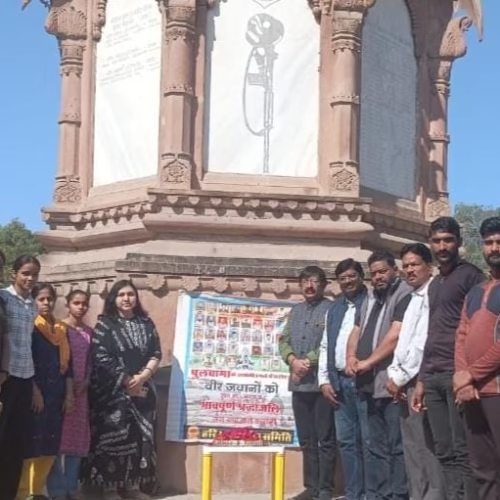

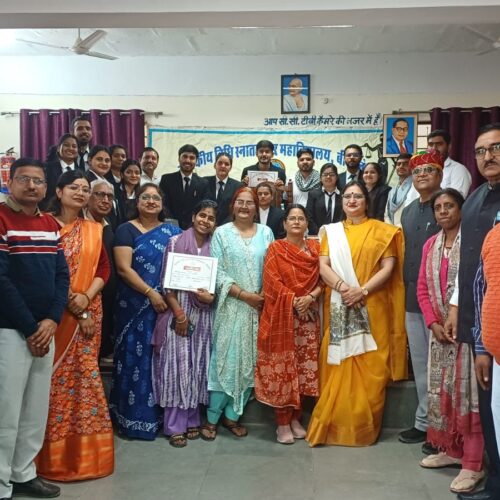
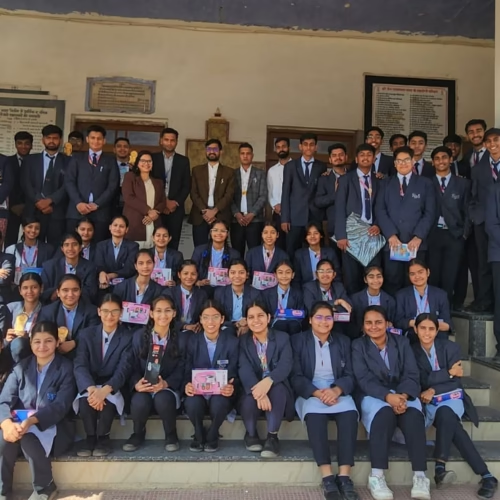


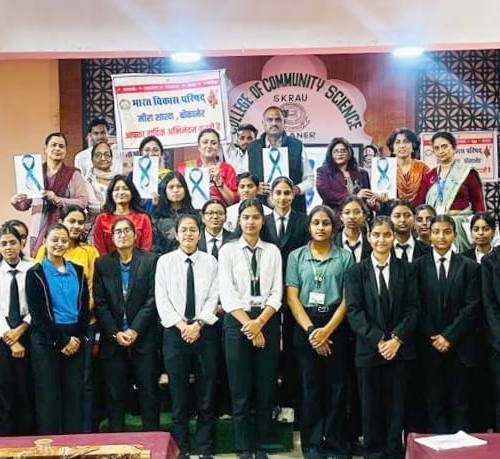
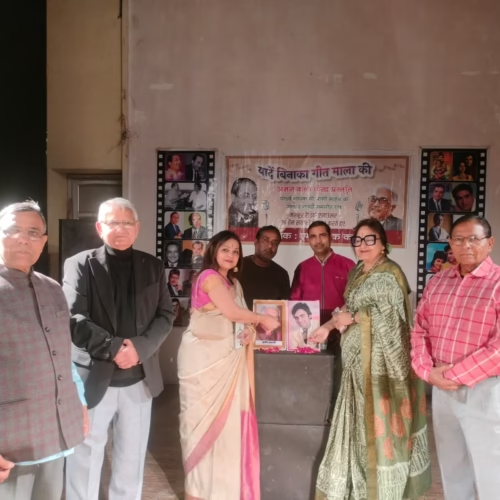

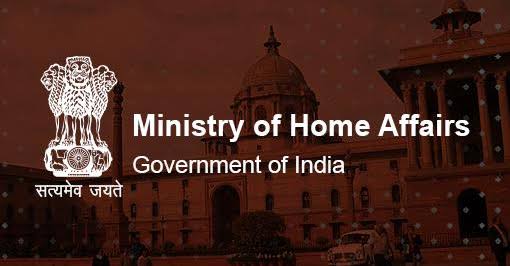





Add Comment